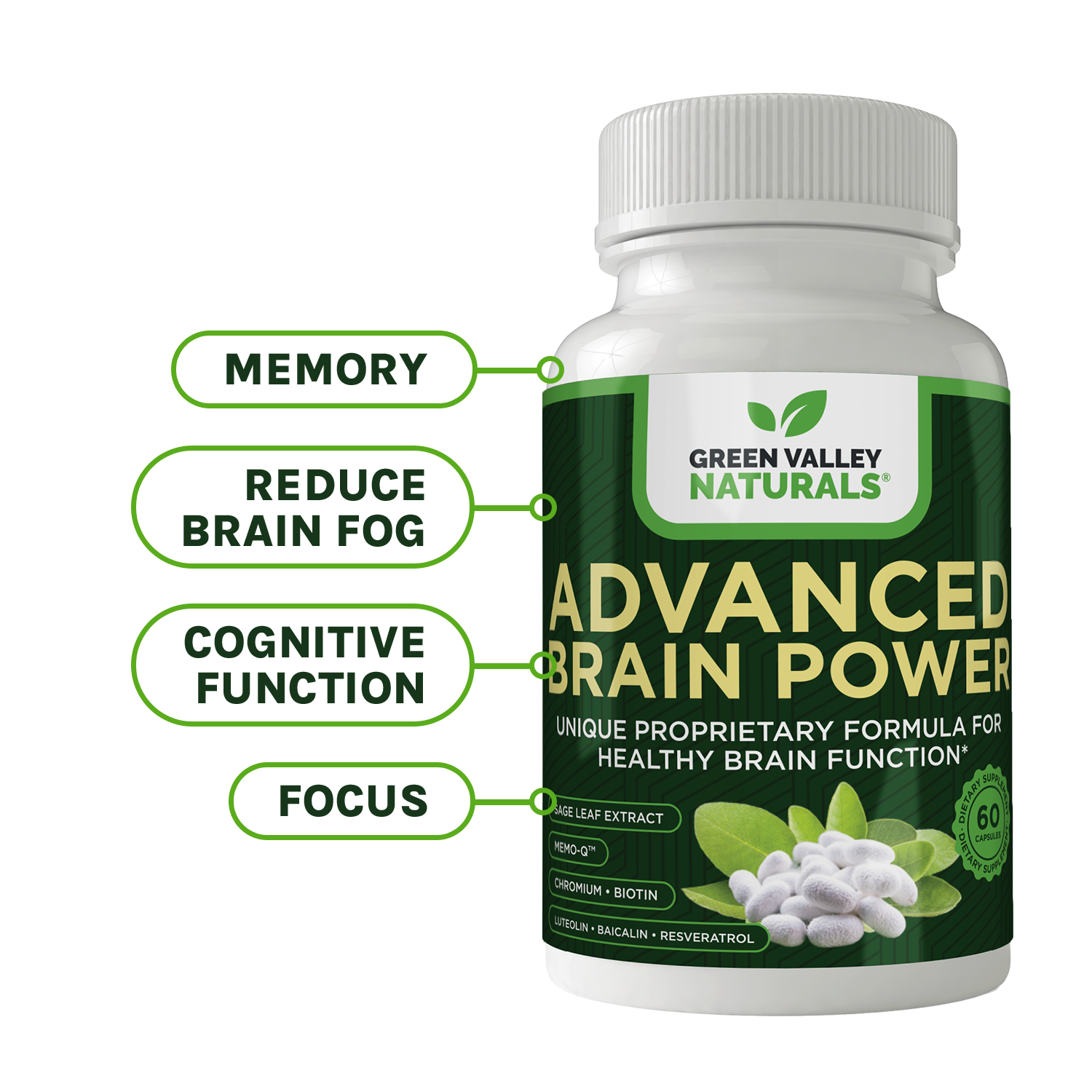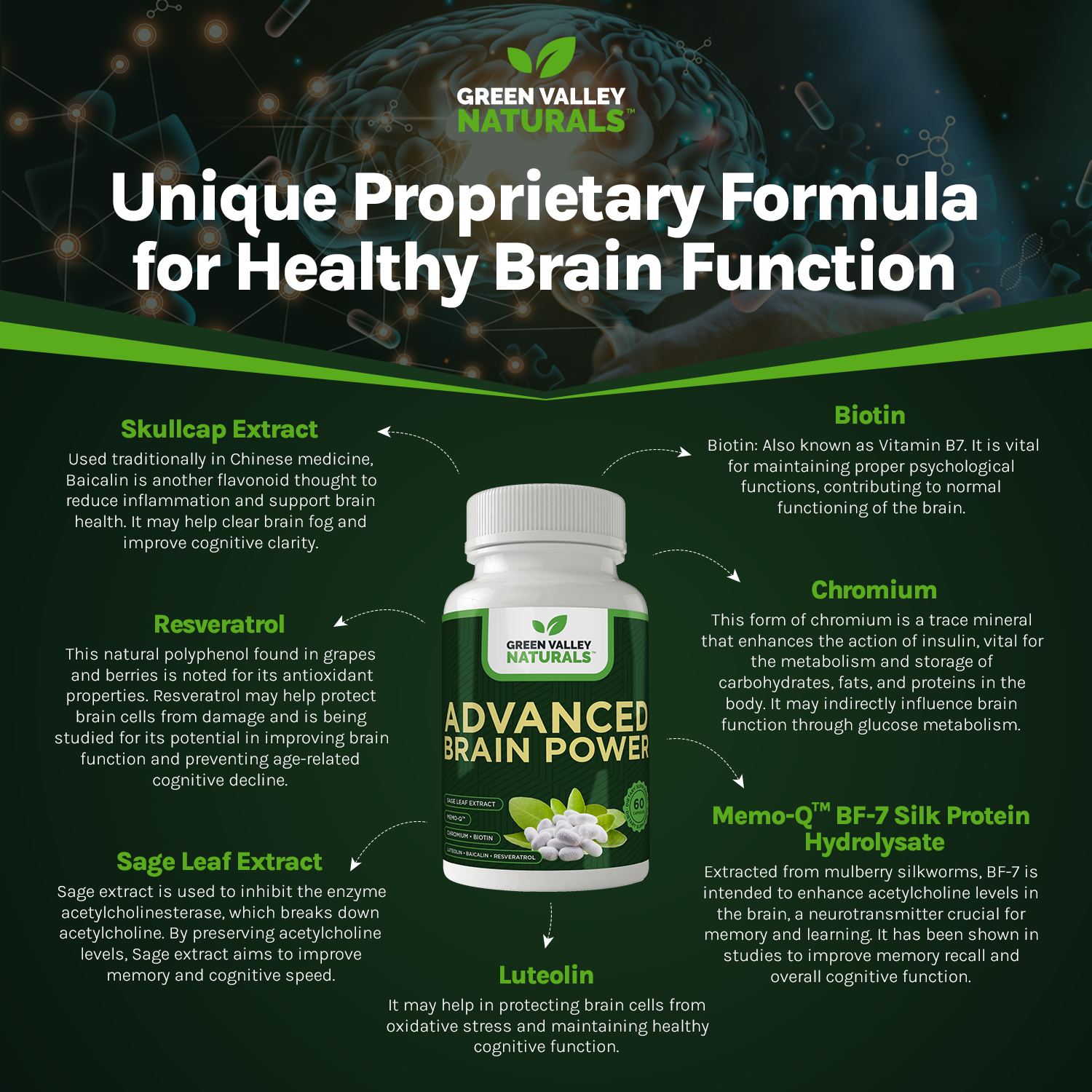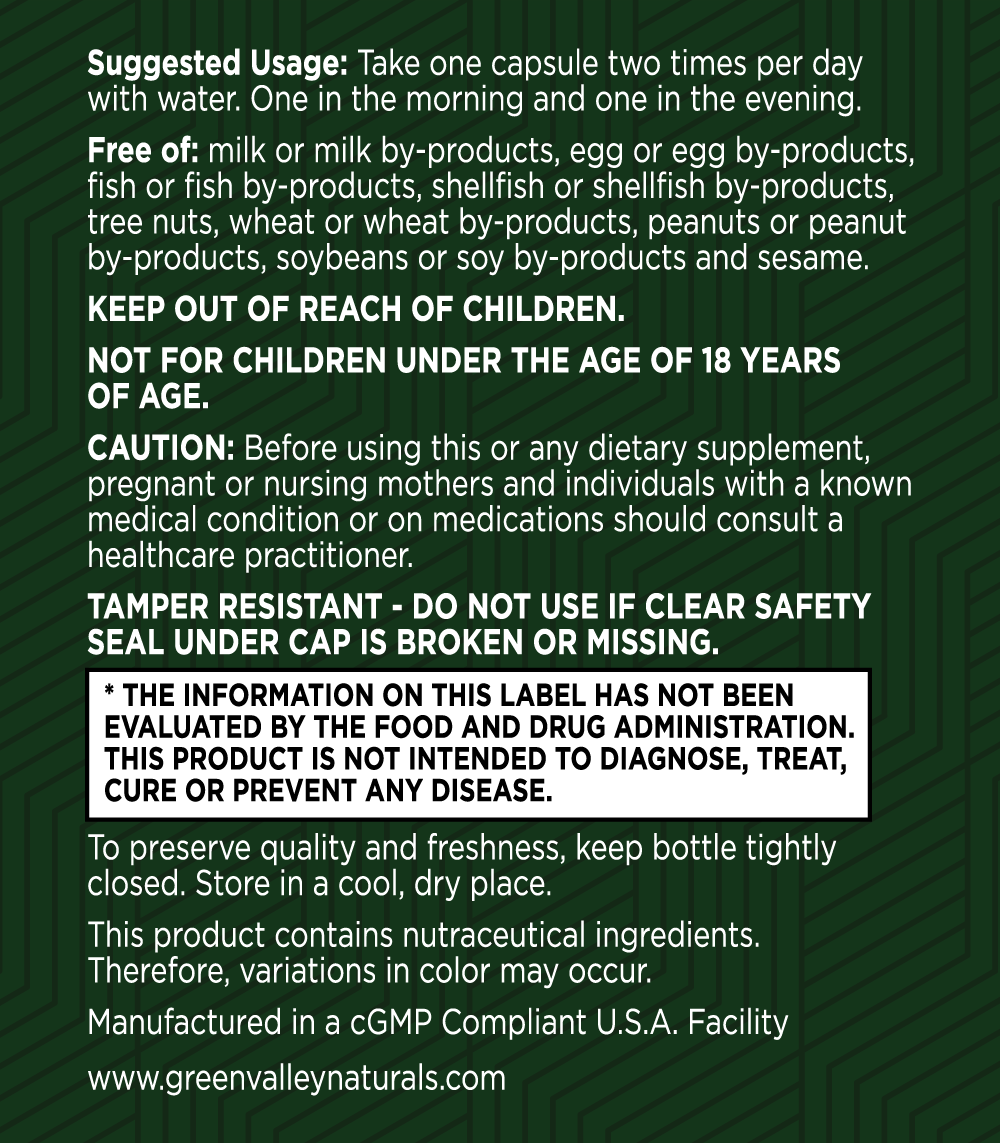Advanced Brain Power
Unique Proprietary Formula For Healthy Brain Function*...
Key Ingredients

Luteolin 98% (from Sophora Japonica bud)
Luteolin 98% (from Sophora Japonica bud): Luteolin is a flavonoid known for its anti-inflammatory and antioxidant properties. It may help in protecting brain cells from oxidative stress and maintaining healthy cognitive function.

Skullcap extract (root) (Scutellaria baicalensis 90% baicalin)
Used traditionally in Chinese medicine, Baicalin is another flavonoid thought to reduce inflammation and support brain health. It may help clear brain fog and improve cognitive clarity.

Resveratrol 99%
This natural polyphenol found in grapes and berries is noted for its antioxidant properties and arterial‐flexibility support. Resveratrol 99% helps replenish the vascular protection lost when cholesterol drug therapy depletes Co-Q10 and other nutrients, and is also being studied for its potential to protect brain cells and prevent age-related cognitive decline.
Biotin
Biotin: Also known as Vitamin B7, Biotin plays a key role in the body’s nervous system. It is vital for maintaining proper psychological functions, contributing to normal functioning of the brain.

Chromium (as chromium picolinate)
Chromium (as chromium picolinate): This form of chromium is a trace mineral that enhances the action of insulin, vital for the metabolism and storage of carbohydrates, fats, and proteins in the body. It may indirectly influence brain function through glucose metabolism.
Memo-Q™ BF-7 Silk Protein Hydrolysate
Extracted from mulberry silkworms, BF-7 is intended to enhance acetylcholine levels in the brain, a neurotransmitter crucial for memory and learning. It has been shown in studies to improve memory recall and overall cognitive function.

Sage leaf extract 8:1 (Salvia officinalis)
Known for its memory-enhancing properties, Sage extract is used to inhibit the enzyme acetylcholinesterase, which breaks down acetylcholine. By preserving acetylcholine levels, Sage extract aims to improve memory and cognitive speed.
Frequently Asked Questions
Your health is our top priority
Here at Green Valley, we only work with US-based manufacturing facilities that are cGMP (Good Manufacturing Practices) compliant and FDA inspected.
Our products are triple tested by our manufacturers to ensure potency and purity and are stored in our temperature and humidity-controlled warehouse right here in the Shenandoah Valley, Virginia. And we ship directly to your doorstep – we don’t share warehouse space and we don’t hand off your business to a third party to fulfill your order.
Best of all, all Green Valley products come with our 90-day Satisfaction Guarantee. If you are unhappy with the product for any reason, simply call or email our customer support team and return the unused portion of the product within 90 days of your order. We’ll refund every penny of your purchase (less shipping), no questions asked!

Advanced Brain Power Customer Reviews
I have been taking Advanced Brain Power for over a year
I have been taking Advanced Brain Power for over a year. I have more focus, not as scattered on my thinking.
After 2 months, it seems to be doing the job for memory and brain activity
After 2 months, it seems to be doing the job for memory and brain activity. My husband seems to stay on track much better. The other fancy product we used just doesn't do as well as yours. Results were rapid.
I started 2 months ago
I started 2 months ago. Memory seems to be a bit better than the other famous brand. My life is extremely busy---I still work--I try to jog and walk at least 2 miles---I am very fortunate-and I ski all winter and I just turned 92😃. Hard to measure, but I think you may have a little advantage. I did not notice an immediate change just maybe an improvement.







